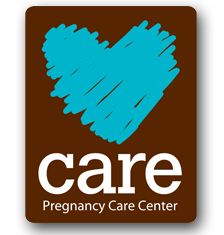An abortion is a serious medical decision. It is important to learn about the side effects and potential risks first. When one of the risks is having an incomplete abortion, you need to know how to recognize that and what to do. Although we do not perform or refer for abortions, we want to help you be informed. Please read further to learn about the risks and signs to look for when taking the abortion pill.
The Abortion Pill Process
This method is known as a medical, chemical, or medication abortion. You take two drugs over a 24 to 48-hour period to terminate a pregnancy. Over half of abortions today use this method. There are some restrictions. The following are some of the reasons not to use this method:
1. You are too far along in your pregnancy.
Knowing how long you’ve been pregnant is critical to what type of abortion you have. The FDA approves taking medical abortion drugs only through ten weeks gestation (70 days or less since the first day of a patient’s last menstrual period).
The longer you’ve been pregnant, the less effective the drugs become. You also run a higher risk of an incomplete abortion. Incomplete abortion is when parts of the pregnancy remain inside your body once you’ve taken all the drugs.
It’s critical to diagnose an incomplete abortion because it can lead to a severe infection.
Signs of an incomplete abortion include heavy bleeding, lower back pain, or lower abdominal pain. You should not use the abortion pill method if you can’t make follow-up visits to your provider to ensure the abortion is complete.
2. You have an ectopic pregnancy.
An ectopic pregnancy occurs when a fertilized egg implants and grows outside the
uterus. It usually grows in a fallopian tube (which leads to the uterus). An ectopic
pregnancy can’t grow normally and can very often be life-threatening.
It’s difficult to tell if you have an ectopic pregnancy. You have the same symptoms of
early pregnancy, such as a missed period, tender breasts, and nausea. The initial signs
that your pregnancy is ectopic may be bleeding and pelvic pain.
The abortion pill method doesn’t terminate an ectopic pregnancy.
3. You have a pre-existing mental health issue.
The National Library of Medicine posted a research study about the effects of abortion
on a woman’s mental health. It concluded that women who have abortions have elevated
rates of mental illness compared to women without a history of abortion. It was also
determined that women with a pre-existing mental illness were at greatest risk of mental
health problems after an abortion.
Some of the emotional issues include depression, anxiety, sadness, grief, and feelings of loss. For certain women, these symptoms didn’t appear for weeks, months, or years later. It’s essential to review both your physical and emotional health before an abortion.
How We Can Help You
To learn more about the side effects and potential risks of a medical abortion, read What Is a Medical Abortion? The Pregnancy Care Center offers free and confidential pregnancy testing. We offer a cost-free onsite ultrasound for eligible patients who have a positive pregnancy test.
Ultrasound is the best way to determine how far along you are in your pregnancy and its location. It also reveals if your pregnancy is viable (growing with a detectable heartbeat) or if you have had a miscarriage.
Contact us to ask a question or schedule a free and confidential visit to our center.
